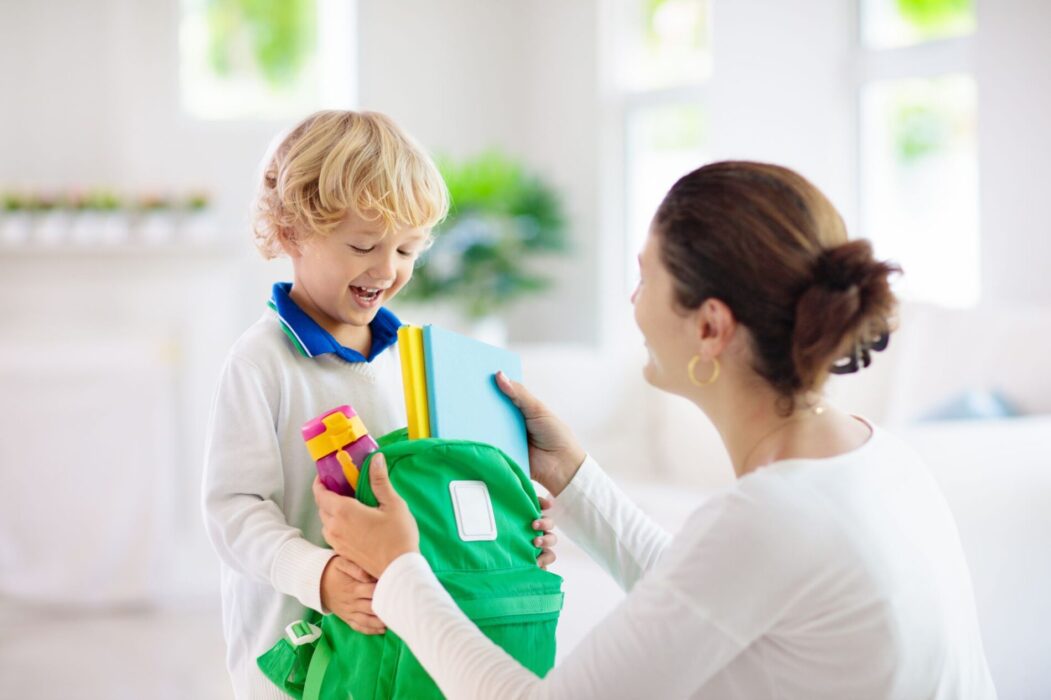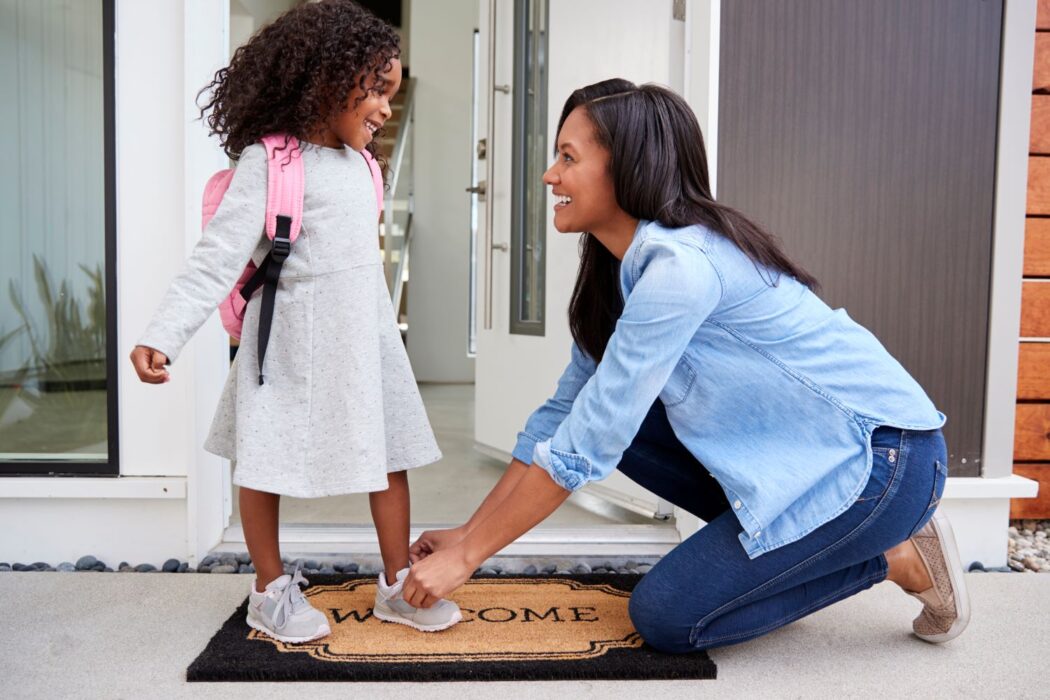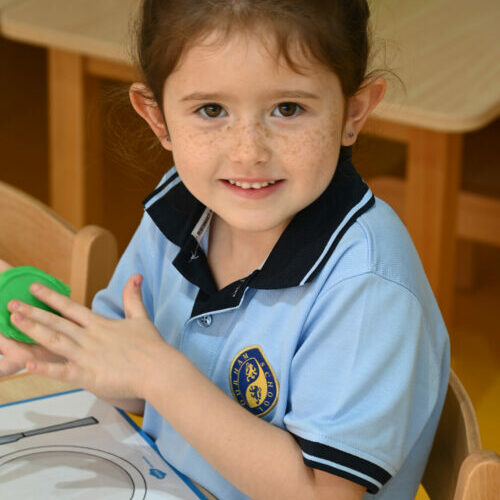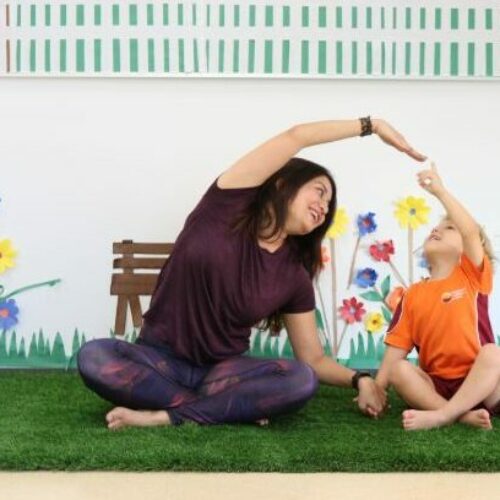Preparing your child for the first day of school
Starting school is an exciting time for little ones but it can also be worrisome. Here we look at how you can prepare your child for school and dissolve their fears!

The day your child sets off for school for the very first time is a momentous occasion. It’s natural for both you and your little one to feel a whole range of emotions in the build up to this special day. There are plenty of things that you can do to prepare yourselves, drum up excitement and dismantle any nerves.
EVERY CHILD IS UNIQUE
Particularly in the early years, the developmental stage of little ones can vary widely from child to child. This is usually not cause for concern, as everyone learns in their own way and grows different skills at different rates and times. When the first day of school comes around, some children will be able to read, count and perhaps even write a little bit. Others may not have any of these skills yet and that’s completely fine. Their new teacher will have the ability to help all children progress, no matter their starting point.
One of the primary goals of these early years is to help your child to develop a happy relationship with school and learning. Any comparisons or competitiveness between children (or parents!) should ideally be kept to a minimum, to allow all children to flourish in this exciting new arena.
POSITIVE ATTITUDE
In order for your child to develop and maintain a healthy relationship with school, a positive attitude is key. Young children, in particular, mirror a lot of their emotions on what they see in their parents. If you react negatively to something, they are likely to begin reacting in the same way. With this in mind, it’s always good to speak about school and learning in a positive manner. Regardless of any potential negative experiences you had during your school years, try to present this new chapter of your child’s life as an exciting, hopeful and happy one.

Encourage your little one to put their best foot forward by framing any nerves they may be feeling as excitement. If they express fear about a certain aspect of school, talk through it with them and try to show them that they will be okay. Then turn the focus to something that they are sure to enjoy, such as play time or spending time with one of their friends.
PRACTICE MAKES PERFECT
Trial runs are one of the very best ways to help your child get ready for starting school. Running through all of the routines that are going to make up their school day will take the mystery out of the situation and, therefore will remove most of the fear. Try building their sleep routine well in advance so that they’re used to waking up at the right time for school. In the weeks leading up to school, you can also take them on a practice version of the school run a few times.
Planning out their day in a structured way that will be somewhat similar to a school day, including lunch times, can help to set your little one up for what’s to come. You know your child best, so you may already have a good idea of what part of starting school that they’re most worried about. Practice makes perfect and lots of encouragement will enable your child to step through the school gates with as little fear as possible!
BUILDING INDEPENDENCE
Perhaps the biggest fear that strikes children once the classroom door closes behind them is that they’re all alone. Yes, there is a teacher and a number of classmates but there is little comfort in these unfamiliar faces! Asking a stranger for help can be a frightening prospect for a young child. Instilling a sense of independence within them will grow their confidence in these understandably uncomfortable situations.

If your little one feels confident that they can handle some of the tasks ahead, they’re much more likely to enjoy themselves. Three of the top things to address are: going to the bathroom alone, feeding themselves and changing their clothes (for PE or other extracurricular activities). Once your children are happy to take on these challenges independently, there is a lot less to fear about the first school day.
THE FIRST MONTH
Once the first day is out of the way, that doesn’t necessarily bring about an end to the need to support your child in these ways. School is an ongoing, changeable process and will certainly bring about a difficult day for your little one, every so often. Stay in tune with how they feel and how they’re navigating this exciting new phase of their life.
As well as keeping on top of how your child is handling everything, try to build relationships with the new people in their life. That extends to their teacher, the parents of other children in the class and perhaps even their fellow classmates. This will have a few major effects. You will gain a deeper understanding of the social dynamics at play in your child’s day. You’ll also develop a rapport with lots of the other adults, which can result in a strong support network for everyone.

A good relationship with your child’s teacher is crucial, so that they understand your child’s needs. This can also act as a bridge between you and your child while they’re away all day. Should anything happen in school that you need to be made aware of, or should you wish to get a message to your little one, their teacher can become a reliable point of contact for you and your child.
ALL SET!
Heading off to school for the first time can be a wonderful experience for children, once they’re suitably prepared. Nerves are a healthy part of the process – this is a huge change after all! With these tips, you’ll hopefully have a better idea of how to set your child up for success and they embark on this new adventure.











Comments